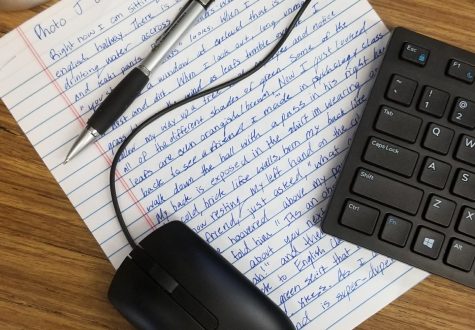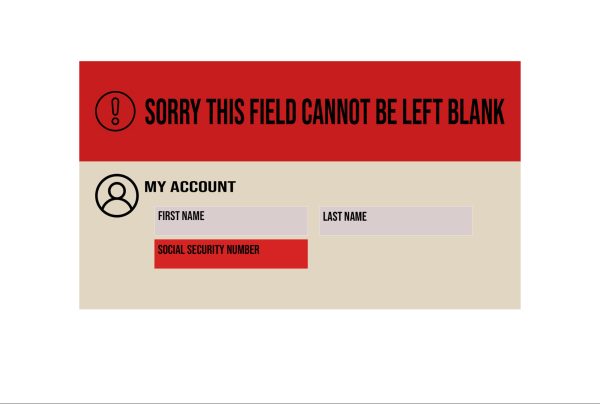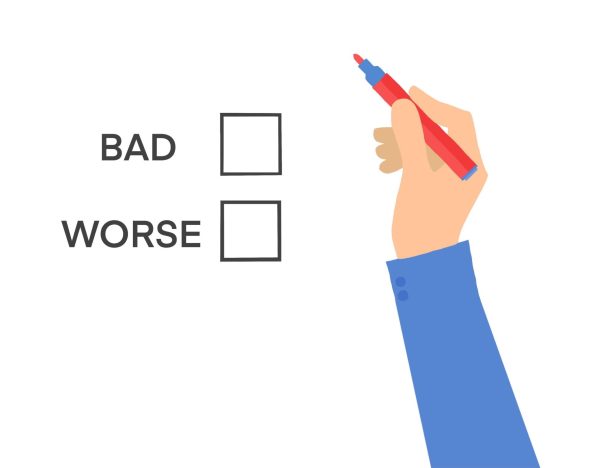
Chances are, you are well aware of a systematic shift that schools across the country are participating in: switching from traditional classroom resources to online tools, such as the infamous Blend project that has been implemented at McCallum this year. There has been an obvious increase in online homework, assignments, tutoring and other schoolwork in the past few years, and it is expected to continue growing.
As we all know, starting in January, all students at McCallum will receive a Chromebook. To some, this is exciting, and to others it is annoying, but what can be agreed upon by all is that these Chromebooks will lead to even more computer-based assignments. AISD is strongly encouraging teachers to use these new Chromebooks in their everyday lessons in hopes of “keeping up with the modern world.” So far, there hasn’t been an overwhelming amount of feedback from the student body on the matter. For myself and others like me, however, it’s clear that these “modern classrooms” aren’t all that they’re cracked up to be. They may seem like the future of education to school boards around the nation, but online classwork is unfavorable and even damaging to students and our learning in many ways.
It’s true, of course, that some students don’t have a problem with this different style of learning; they may even appreciate it. They don’t want to keep track of papers or simply prefer typing to writing, and that’s wonderful. However, not everyone is happy with these changes. For example, there are many problems that nearly everyone can relate to that are caused by working from behind a computer screen. A miserable headache, nausea and some degree of eye strain are some of the most typical symptoms. After talking to my classmates about it, I realized that I’m not alone in feeling overwhelmed by an influx of Blend assignments or other computer work; operating over a screen for long periods of time has been proven to increase anxiety and stress.
That alone was enough reason for me to always ask my teachers for a paper-copy of assignments and to even start drafting an email to the school board to petition for physical textbooks. After I learned about every student being issued a Chromebook in a few months, however, I realized that my avoidance of technology-based schoolwork is going to get more difficult.
Personally, I’ve always known that it’s easier for me to concentrate when I’m working with a pen and paper. It wasn’t until I decided to back my beliefs with research that I discovered that paperwork significantly improves my grades and studying comprehension as well. Writing by hand has been proven to activate specific regions in our brains that are important for understanding information, remembering facts, and improving creativity. But that isn’t all. It may seem like writing out assignments takes longer than typing, and in a way that’s true. But doing schoolwork online increases the risk of distractions, which ultimately wastes even more time. I know that I’m not the only one who has turned on their phone to check the Blend app, and a few minutes later be lost scrolling through Instagram pictures. Of course, these Chromebooks will block sites that aren’t AISD-approved, but that won’t take away all of the many possible distractions.
I don’t deny that some people might not experience the same things that I do, and that the Chromebooks might even be a relief for people without a computer at home. These computers will undoubtedly increase our online workload, however, which is very harmful for many of us. Hopefully in the future there will be a way to modernize schools and classes in an easier, healthier and more productive way. But, until that day, the good old-fashioned pen-and-paper schoolwork is the right choice to incorporate the needs of everyone.















Sophia Shampton • Jan 26, 2018 at 11:36 am
Another thing Blend has complicated, for me at least, is the amount of calendars I need to check for HW. I have a planner, paper calendars handed out by my teachers, and now I have inconsistent Blend updates. Some of my teachers tell me we’re gonna start using Blend and to trust it, but then it doesn’t match their paper calendar and I end up having to turn in late work because I didn’t know what I needed to do for HW!
Mia Terminella • Jan 23, 2018 at 11:48 am
This article perfectly highlights the many challenging possibilities that the Chromebooks might cause for McCallum. Since receiving the Chromebooks, as a student, I can say that our online work load has defiantly doubled. I am curious to see how the rest of the year goes with the new Chromebooks.
Mr. Barber • Dec 11, 2017 at 3:42 pm
Well written, balanced, and cogent argument for the value of paper and pen in the learning environment. Food for thought for all students and teachers. As teachers, our challenge is to avoid using technology as an electronic worksheet, rather we must make the effort necessary to structure assignments that challenge our students with product choices and a range of avenues for achieving success as they navigate toward their learning goals. This article highlights clearly some of the obstacles and opportunities present in our challenge.